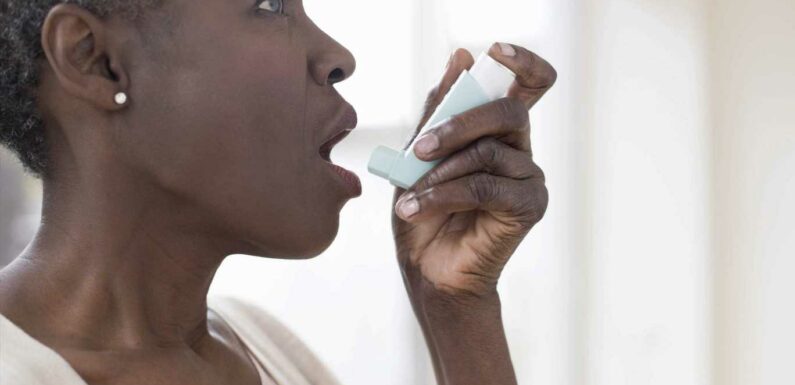
THOUSANDS of people who suffer from respiratory health conditions could be missing out on up to £627 a month.
Anyone suffering with asthma, sleep apnoea, pneumonia and more, could be eligible for the pay out from the government.
If you have a condition such as severe asthma it counts as a disability.
And if it’s making your daily life difficult, you may be eligible for Personal Independence Payment (PIP).
That means you're eligible to receive financial support from the DWP.
It's the same for those with Cystic Fibrosis, chronic bronchitis and other respiratory issues.
READ MORE IN MONEY
Major change planned to Universal Credit and PIP that could speed up claims
List of councils paying up to £300 to those on Universal Credit
And if the problems are a hindrance on your day to day life, you could be eligible for the cash.
Personal Independence, or PIP for short, is a benefit for those who struggle with any health condition or disability.
The payment can boost your income by thousands of pounds a year, and you can be eligible whether you are in work or not.
There are two elements to PIP: a daily living part if you need help with everyday tasks, and a mobility part if you need help with getting around.
Most read in Money
Aldi is making a huge change to its website – and shoppers will be very unhappy
Martin Lewis issues 'danger' warning over banking mistake – how to avoid it
Sky is giving out set-top box upgrades for free – are you eligible?
Shoppers rush to buy Ninja air fryer dupe that's £110 less from big supermarket
There are two rates for each part – standard or enhanced – depending on the level of your needs.
The weekly rates are:
- Standard daily living component: £61.85
- Enhanced daily living component: £92.40
- Standard mobility component: £64.50
- Enhanced mobility component: £24.45
This means you could get up to £627.60 a month if you get the higher weekly rates for both parts.
There are 24 respiratory conditions which could qualify you for the payment.
The DWP said while there is no specific list of conditions which entitles people to PIP, the impact it has on your daily life could mean you are eligible.
And if you have a condition that is not listed you could still be entitled.
The 24 conditions include:
- Sleep apnoea – obstructive
- Upper respiratory tract – Other diseases of / type not known
- Chronic obstructive pulmonary disease
- Chronic obstructive pulmonary disease (COPD)
- Chronic bronchitis
- Emphysema
- Bronchiectasis
- Cystic Fibrosis
- Asthma
- Pulmonary fibrosis
- Extrinsic allergic alveolitis
- Fibrosing alveolitis
- Pulmonary fibrosis – Other / type not known
- Pneumoconiosis
- Asbestosis
- Pneumoconiosis
- Silicosis
- Granulomatous lung disease and pulmonary infiltration
- Sarcoidosis
- Empyema
- Pleura
- Pleural effusion
- Pneumothorax
- Lung transplantation
- Heart and lung transplantation
- Pulmonary embolus
- Pneumonia
Who can get PIP and how do I apply?
PIP is for those aged 16 or over who have not reached state pension age.
You must have lived in England, Scotland or Wales for at least two of the last three years, and be in one of these countries when you apply.
The process is different in Northern Ireland, and there are additional rules if you live abroad or if you’re not a British citizen.
Crucially, you must also have a health condition or disability where you either have had difficulties with daily living or getting around (or both) for three months, and you expect these difficulties to continue for at least nine months (unless you’re terminally ill with less than six months to live).
Difficulties with daily living can include the following:
- preparing or eating food
- washing
- bathing and using the toilet
- dressing and undressing
- reading and communicating
- managing your medicines or treatments
- making decisions about money
- engaging with other people
Also be aware that you cannot get PIP and armed forces independence payment at the same time.
You can make a new Personal Independence Payment (PIP) claim by calling the Department for Work and Pensions (DWP) on 0800 917 2222.
There are also other ways to claim if you find it difficult to use a telephone. See Gov.uk for more information.
When you claim, you'll need the following information:
- your contact details
- date of birth
- National Insurance number
- bank or building society account number and sort code
- your doctor or health worker’s name
- address and telephone number,
- dates and addresses for any time you’ve spent abroad, in a care home or hospital
Someone else can call on your behalf, but you’ll need to be with them when they call.
You'll then be sent a form to fill in, after which you'll be invited for an assessment or your health or social care worker will be asked for information.
After this you'll be sent a letter telling you if your claim has been successful.
Read More on The Sun
Woman left looking like an egg after botched Botox goes horribly wrong
Love Island winners rich list shows who’s made most & there’s a clear trend
You can read Citizens Advice’s help on preparing for an assessment.
If you apply for PIP and are unsuccessful you can appeal a decision.
Do you have a money problem that needs sorting? Get in touch by emailing [email protected]
Source: Read Full Article








